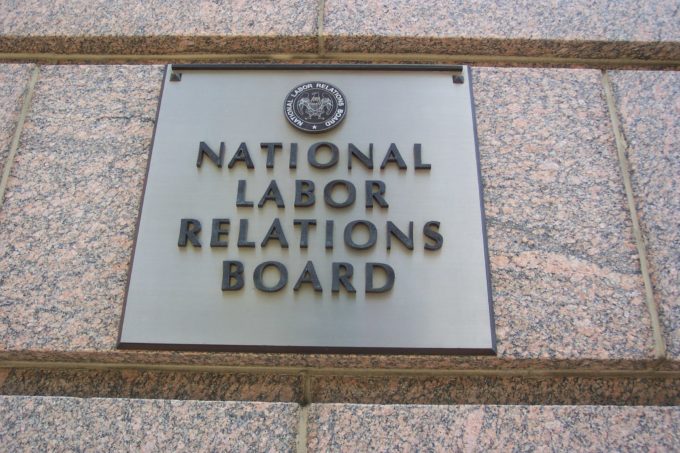
Second Circuit holds employer-disparaging Facebook activity protected by labor law
By Bhargav Srinivasan – Edited by Henry Thomas
On October 21, 2015, in Triple Play v. National Labor Relations Board, the Second Circuit affirmed a 2014 National Labor Relations Board ruling that Triple Play Sports Bar violated the National Labor Relations Act when it discharged two employees for liking and commenting on a critical Facebook status.
The case involved two employees of the Triple Play Sports bar, Vincent Spinella and Jillian Sanzone who had been fired for their online conduct. A third employee had published a post on Facebook stating: “Maybe someone should do the owners of Triple Play a favor and buy it from them. They can’t even do the tax paperwork correctly!!! Now I OWE money...Wtf!!!!” Spinella acted first when he “liked” that post. Next, Sanzone commented “I owe too. Such an asshole.” These actions were among the later responses in a chain of comments involving the former employee, other current employees, and Facebook friends – at least one of whom was a customer of the sports bar.
Section 7 of the National Labor Relations Act guarantees employees the right “to engage in other concerted activity for the purpose of… mutual aid or protection.” An administrative law judge with the NLRB determined that liking and commenting on the original employee’s Facebook post met the definition of concerted activity. That protection, however, is lost if the activity is sufficiently disloyal. The Supreme Court, in Labor Board v. Electrical Workers (Jefferson Standard), held that activity was sufficiently disloyal when it was disconnected from any ongoing labor dispute. That test was used by the NLRB to conclude that Spinalla and Sanzone’s activity was protected.
On appeal, the court held that the workers’ activity was conducted in the context of an “ongoing dialogue among employees about tax withholding”. As workers discussing labor issues, they are protected under Section 8(a)(1) of the Act which prevents employers from firing employees for exercising their Section 7 rights to self-organize and engage in other “concerted” activities (29 U.S.C. § 157). The court upheld the Board’s finding that such activity was, in fact, concerted because it involved other employees and was “part of an ongoing sequence of discussions that began in the workplace about [Triple Play’s] calculation of employees’ tax withholding.”
On this issue of disloyalty, the court agreed with the Board’s application of Jefferson Standard to conclude that the comments were not disloyal because they did not disparage or even mention any products or services. Furthermore, on the issue of defamation, the court agreed that Triple Play failed to meet the burden of the Linn test that the comments were maliciously untrue.
Triple Play argued on appeal that because the activity contained obscenities, the court should find that this activity lost protection under NLRB v. Starbucks Corp., a case in which the Second Circuit remanded a protective Board Order because of the employee’s utterance of obscenities in the presence of customers. However, the court held that applying the Starbucks standard to the Facebook discussion “could lead to the undesirable result of chilling virtually all employee speech online”. Since “[almost] all Facebook posts by employees have at least some potential to be viewed by customers”, the court explained that online discussion not directed towards customers should continue to be protected in accordance with the “reality of modern-day social media use.”
Finally, Triple Play argued that even if the court applied Jefferson and Linn instead of Starbucks, it should see Sanzone’s comment as an endorsement of the original post and Spinella’s “like” as an endorsement of disparaging comments about Triple Play. The court held, instead, that the employees acted to provide mutual support looking toward group action rather than to disparage or undermine the company’s reputation. The court argued that anyone viewing the post could clearly see that it involved an ongoing labor dispute and could thus evaluate the actions critically in light of the dispute.
Though not implicated in the case, the court found that the sports bar’s internet policy was unlawful inasmuch as employees could reasonably believe it prohibited activity protected under Section 7 of the Act.
A National Law Review Article points out that, in spite of requests from the NLRB, the case was unpublished and is therefore not precedential. This is particularly surprising considering that, as the Technology & Marketing Law Blog’s Eric Goldman pointed out, this case was one of very few similar employee termination disputes to make it to an appellate court. Trying to reconcile the ruling in this case with the “slew of cases where complaining employees are found to be rightly terminated,” Goldman admits that the court may have drawn a “formalistic line.” Goldman also notes that the suggestion that Starbucks only applies when customers were the primary audience was unexpected.
Business Insurance, a publication concerning risk management for executives, wrote about the case, suggesting that it was “a reminder that to survive scrutiny by the NRLB… employers’ social media polices ‘need to be more specific.’ ” Littler, a labor law firm, provided “key takeaways” from the case, generally emphasizing the need for employers to consult with attorneys before making firing decisions based on internet activity. This suggests that, despite being non-precedential, the decision will impact executive decision making regarding firings.